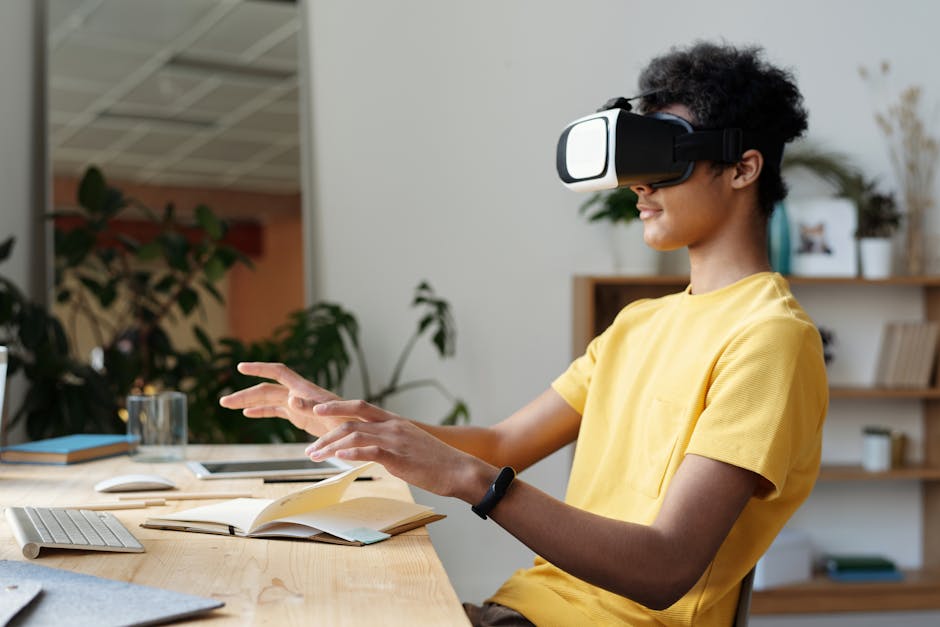Neuroscience of Learning: Boost Your Online Course Engagement
In an age where online learning is booming, educators continuously seek innovative methods to enhance student engagement and retention. You might have heard of microdosing—taking small amounts of psychedelic substances to boost creativity and mental clarity. But did you know it’s being examined in tandem with the neuroscience of learning to revamp online education? Let’s delve into how this fascinating intersection can transform not just how we learn, but how we teach in the digital landscape.
What is Microdosing?

Microdosing typically involves taking a minuscule dose of a psychedelic substance, often around one-tenth to one-twentieth of a recreational dose. Popular among creatives and tech entrepreneurs alike, enthusiasts report enhanced focus, creativity, and emotional balance. But how does this relate to the neuroscience of learning and engagement in online courses?
Recent studies illuminate the ways microdosing can affect cognitive functions. Research suggests that psychedelics can promote neurogenesis—the generation of new neurons—which can lead to improved learning capabilities. When students engage in online courses, maintaining focus is critical. This cognitive enhancement could make coursework feel more engaging, fun, and ultimately more successful.
The Neuroscience Behind Learning Engagement

Understanding the neuroscience behind learning can help us tap into what makes online courses effective. Neuroplasticity, the brain's ability to reorganize itself and form new connections, plays a central role in how we learn. The application of microdosing could potentially create an optimal environment for neuroplasticity, allowing learners to retain information more effectively.
As online educators, creating a stimulating learning experience means tapping into the brain's preferences. Incorporating gamified elements into courses can lead to increased motivation and engagement. You can read more about this in our article on gamifying online courses for success.
Enhancing Focus in Online Learning

Microdosing isn't a magic pill, but it can help increase focus, a crucial aspect of building retention in an online educational setting. There is a wealth of evidence pointing to the positive impact of focus on learning outcomes. For instance, a study from Harvard Business Review indicates that attention spans and cognitive load management significantly influence retention rates.
Imagine a student struggling to keep their mind on a lengthy online lecture. With enhanced focus through microdosing, that same student might absorb more information without feeling overwhelmed. Moreover, microdosing could potentially reduce anxiety associated with course engagement, allowing learners to approach learning from a more relaxed and curious mindset.
Emotional Intelligence and Online Learning

Emotional intelligence (EQ) plays a vital role in personal and academic success. Interestingly, some advocates of microdosing argue that psychedelics can enhance emotional awareness and empathy, key components of EQ. As we navigate an increasingly digital education landscape, integrating emotional intelligence training into online courses becomes imperative.
Our article on emotional intelligence in online learning highlights how incorporating EQ strategies not only enriches the learning experience but also fosters an environment where students feel supported. By nurturing empathy through microdosing, educators can equip learners with the emotional skillsets needed for academic success and personal growth.
Harnessing Neuroaesthetics in Course Design

The aesthetics of learning play an important role in cognitive performance. Neuroaesthetics investigates how beauty and aesthetics influence brain function. When combined with principles of microdosing, online educators can create more engaging and effective learning environments.
For instance, incorporating beautiful visual designs, harmonious audio, and appealing layouts aligns with the principles of neuroaesthetics. It's about crafting an experience that isn’t just informative but also feels uplifting. Our exploration of neuroaesthetics in online course design provides further insights into how to use this concept effectively.
Practical Approaches for Online Educators

To enhance the engagement and retention of your online courses, consider these practical strategies:
-
Integrate Microdosing Discussions: Include modules that discuss the neuroscience behind microdosing and its implications for learning, ensuring potential risks are explicitly stated.
-
Gamify Content: Incorporate interactive quizzes, rewards, and challenges to keep students motivated. Check out our article on igniting lifelong learning through gamification for tips.
-
Foster Community: Create discussion forums or group projects that encourage social interaction, thereby enhancing emotional connections and improving retention.
-
Focus on Emotional Intelligence: In your coursework, include strategies to foster emotional awareness, as outlined in our findings on the rise of emotional intelligence.
-
Utilize Neuroaesthetics: Utilize appealing visuals, well-organized layouts, and thematic designs that resonate emotionally with learners—integrating the principles discussed in our article about neuroaesthetics is key.
The Future of Online Learning: What's on the Horizon?

While microdosing holds intriguing possibilities, understanding its implications requires careful examination and responsible discussions. The landscape of online education in 2025 will continue to evolve, with AI technologies leading the charge. We're looking at the future of personalized learning experiences that may take advantage of findings related to microdosing. The integration of AI and microdosing in educational settings could open doors to previously unimaginable pathways for learning, creativity, and growth.
Dive deeper into the possibilities of online learning by exploring articles like the future of AI in online education. Also consider how microcredential pathways can adapt to emerging trends, as discussed in this resource.
Ethical Considerations: Caution First

While the potential of microdosing in enhancing learning is exciting, it’s vital to navigate this topic with caution. Microdosing should not be promoted as a one-size-fits-all solution. Individual reactions to psychedelics can vary significantly; hence, informed consent and research-backed approaches must be prioritized.
In the ever-evolving realm of education and online courses, responsible practices not only build trust but also ensure that educational experiences remain enriching and, most importantly, safe.
Final Thoughts

As we explore the cutting-edge intersection of neuroscience, microdosing, and online education, there lies a world of possibilities waiting to be unlocked. The integration of enhanced learning methodologies could reshape the landscape of online courses—creating platforms where students not only thrive academically but enjoy the process of learning itself.
Microscoping on the neuroscience of learning through innovative approaches can elevate the online learning experience in ways we are only beginning to understand. Embrace this journey, and let microdosing be part of a thoughtful discussion rather than a directive. The future of online education is bright, and creative, and is waiting for teachers and learners to explore together.



